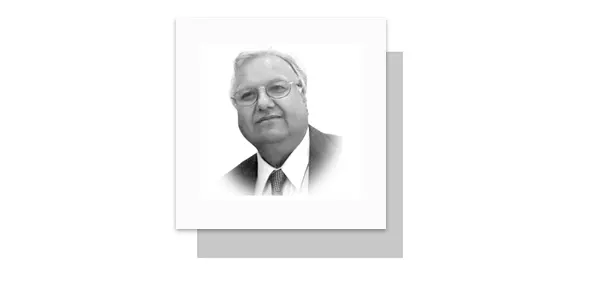MIAN Muhammad Nawaz Sharif emerged from the President House and was pleasantly surprised. He recalled the days when he used to play cricket at Bagh-E- Jinnah Lahore. The person standing in front of him had once balled to him during his batting and had enjoyed batting when Nawaz Sharif balled. This person was Sohail Chaudhry. Sohail Chaudhry’s journalism began in Lahore, giving him a close view and understanding of Punjab’s politics, workings of Muslim League-N, and the Sharif brothers’ political style. Trust developed between them over time. It was due to this trust that when Nawaz Sharif decided to end his first exile, among the few friends he consulted early on were Sohail Chaudhry and Parvez Bashir. Mian Muhammad Shehbaz Sharif personally invited both of them to London. Mian Nawaz Sharif warmly shook Sohail Chaudhry’s hand and expressed happiness at the unexpected meeting. Sohail mentioned that Islamabad missed him. Upon hearing this, Mian Nawaz Sharif stopped walking and looked at him. Was there joy, seriousness or sadness in his eyes? Sohail Chaudhry says it was hard to tell. After a brief pause, Nawaz Sharif said, “I am praying for you, and you should also remember me in your prayers.” He might have said more about these prayers, but by then, a crowd of journalists had gathered around. They were more concerned about the 26th Constitutional Amendment. When they bombarded Nawaz Sharif with questions, he looked at them, said nothing, and left in his car without any further comment.
Nawaz Sharif has been mostly quiet for a long time. When he does speak, it’s often tinged with bittersweet memories of the past and mild complaints. These remarks are interpreted in various ways, suggesting he might be upset or disappointed. Some have even linked his comments to the government’s performance. In politics, anything is possible, but is he really upset, even with his own brother’s government? With many questions and no clear answers, what should be done? Teachers say we should understand through hints and clues. Journalists, at least, should pay attention to such clues. The combination of spoken words and silent events often leads to the truth. Elders say that when a journalist’s observation reaches this level, it leads to the peak art of reporting. So, what is Nawaz Sharif trying to convey? When a child starts to understand things, they learn a principle— the principle of confidentiality. Confidentiality doesn’t mean becoming silent or like a stone but rather having the ability to keep one’s thoughts within until they become reality. It also means knowing when and where to speak and ensuring that trust isn’t betrayed. Nawaz Sharif has been walking the path of politics for almost four decades. In this long journey, he has seen and learned much. He has experienced both successes and trial. After going through such experiences, there’s not much left to surprise him. Now, he moves forward with patience and a largely unemotional demeanour. This truth about Nawaz Sharif should be kept in mind, though there are other aspects too.
Some people have suggested, and certain writers have hinted, that there’s a difference in thinking between Nawaz Sharif and Shehbaz Sharif’s government. Is this impression correct? This can only be assessed by understanding what Nawaz Sharif envisions for the country. What kind of Pakistan did he want after 2018 and the PTI government? If we understand that, the confusion clears up. When the Pakistan Democratic Movement (PDM) was considering a no-confidence motion against the PTI government, Nawaz Sharif’s opinion differed. However, once the motion was finalized, his stance was that after implementing two critical reforms, elections should be held. One of these reforms related to the electoral system, which the PTI was allegedly manipulating. Nawaz Sharif wanted to correct these issues if they were going to take power, as well as address the matters concerning NAB. Secondly, he wanted judicial reforms to safeguard and strengthen the constitutional and democratic process. Some of these tasks have been completed, and some are ongoing.
The constitutional amendment issue is related to this as well. Is everything being done according to Nawaz Sharif’s vision? Politics, like the mathematics, doesn’t always follow a straight path, and no one understands this better than Nawaz Sharif. So, the idea that he’s dissatisfied doesn’t hold up. He has, on more than one occasion, praised Shehbaz Sharif’s economic achievements openly. And we know that when Nawaz Sharif appreciates someone, he does so sincerely. When he doesn’t want to praise, he simply ignores it. So, the question is what is the source of his restlessness? Given this background, understanding his concern becomes easier. He feels that while Shehbaz Sharif’s government has achieved an economic miracle, and progress is being made in legal matters, the results aren’t fully manifesting as they should. The narrative isn’t as strong as it needs to be, and there is room for improvement in political engagement. In short, time is short, and the competition is tough. In my view, this is the meaning behind Nawaz Sharif’s brief conversation with Sohail Chaudhry.
—This writer is former advisor to the president of Pakistan, author & mass media theorist.
(farooq.adilbhuta@gmail,com)










